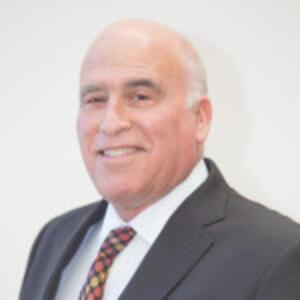Ronne Friedman
Rabbi Ronne Friedman was born in Washington D.C. in 1947 and served as the Senior Rabbi of Temple Israel of Boston from 1999-2016. He was Temple Israel’s associate rabbi and education director before then from 1978-1994. During his 33-years rabbinical career, Rabbi Friedman served as rabbi in Glencoe, Illinois, and Temple Beth Zion of Buffalo, New York. Rabbi Friedman was ordained from Hebrew Union College - Jewish Institute of Religion in 1975, with the first class, to have their first rabbinical studies in Israel, and was awarded a Doctorate from the institution in 2000. In 1986 and 1987, Rabbi Friedman went on two missions to the USSR and maintained his engagement with the Soviet Jewry Movement back in the U.S. Rabbi Friedman has also been involved in other social justice issues such as the resettlement of Southeast Asian immigrants, Equal Marriage efforts in Massachusetts, and including GLBTQ Jews and their families in the larger Jewish and secular community. Rabbi Friedman is currently serving on the Joint Placement Commission of the Union of American Hebrew Congregations, the Central Conference of American Rabbis, and Hebrew Union College-Jewish Institute of Religion which he has been a chair on for the past 15 years on the Reform Pension Board. Rabbi Friedman also hosts a monthly local Boston television show known as Jewish Perspective and has taught as an Adjunct Educator at the Hebrew Union College Jewish Institute of Religion. Rabbi Friedman has had a very long career in the Jewish community serving on various boards, teaching, developing workshops, and of course serving as a rabbi and continues to be active in the community today.
Rabbi Friedman traces his involvement in the Soviet Jewry movement beginning in the early 1970s when it was still a relatively fringe movement within the Jewish community. He provides background information on his rabbinical career and his connection to the Hebrew Union College and Temple Israel. He discusses his relationship with Bernard Mehlman, a mentor and colleague, and their shared commitment to the Soviet Jewry cause. One significant event Rabbi Friedman discusses is his trip to the Soviet Union in 1986. He shares details about the preparations for the trip, including acquiring coded items and supplies for the refuseniks. He also recounts his experience at the Moscow airport customs, where he was briefly detained and questioned about a heart valve he was carrying. During his visit, he had the opportunity to meet with refusenik families, offering rabbinic counseling and sharing information about the growing support for the movement in the United States and Israel. Rabbi Friedman reflects on the impact of the Soviet Jewry movement on the Boston Jewish community and Temple Israel. He notes that it brought about a closer connection between the synagogue and the Federation, particularly during Barry Shrage's tenure as the head of the Combined Jewish Philanthropies. He also discusses the changes that Temple Israel went through as a result of its involvement in the Soviet emigre movement. The congregation actively addressed inclusion and diversity, creating space for intermarried families, supporting comfortable conversion to Judaism, and later expanding to include support for gay and lesbian Jews. When asked about the biggest lesson he learned from participating in the Soviet Jewry movement, Rabbi Friedman emphasizes the indomitability of the human spirit. He witnessed the resilience and determination of the Soviet Jews who faced hardships and danger while holding onto their dream of freedom. He acknowledges the personal growth he experienced as a rabbi through his involvement in the movement, recognizing the importance of doing what is right.



